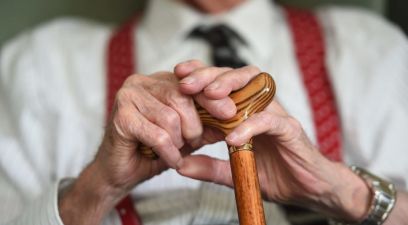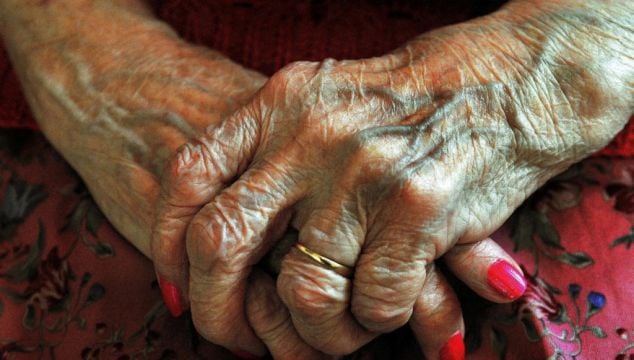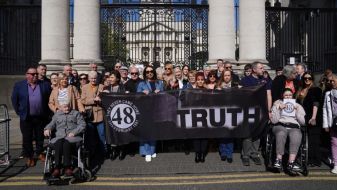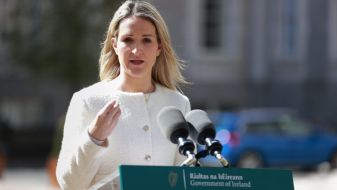On Tuesday, a report published by the Attorney General deemed that a legal strategy pursued by multiple governments relating to illegal nursing home charges was "sound, accurate and appropriate".
The strategy was set over a decade ago and has been continued by civil servants, ministers and attorneys general.
Rossa Fanning SC's report, however, will not be the end of a controversy that has been rumbling on for a number of weeks now.
But what exactly was this legal strategy? How did this controversy emerge? And what does it mean for those impacted by the charges?
Where does the controversy stem from?
Between 1976 and 2005, many medical card holders were charged for care in nursing homes when it should have been free — as was set out in legislation during that time.
This included people who were entitled to public care via their medical card, but might have used a private nursing home due to a lack of space in public facilities.
Thousands of eligible patients (and their families) were left out of pocket.
In 2005, the Supreme Court found that patients who had been unlawfully charged during this time period were entitled to sue the State for damages.
What did the Government do then?
The Health Repayment Scheme was introduced in 2006 to allow those eligible to recover costs incurred.
However, we now know that the Government also began to pursue a legal strategy that would minimise the State's liability when it came to paying damages to those affected by the charges.
The Irish Mail on Sunday reported late last month that the strategy — outlined in a 2011 memo prepared by the Department of Health — was "secret", with knowledge of the strategy confined to a select number of ministers.
The strategy was later signed off by successive governments, the report claimed.
This has sparked controversy: the strategy has been interpreted by many as the Government taking deliberate steps to prevent ordinary people from claiming damages they are entitled to.
In the Dáil, Sinn Féin leader Mary Lou McDonald said it was another strategy to “conceal, to deny, to cover up”, instead of protecting vulnerable citizens.
When the story broke, a Government spokesperson confirmed the existence of a legal strategy pursued by "successive governments", although noted that it predated July 2011.
Documents provided to the Irish Mail on Sunday by whistle-blower Shane Corr showed that the potential loss to the State over repayments was €12 billion. This figure related to payments made by families of those in care over a 30-year period.
How did the Government react?
The existence of a legal strategy of this kind was not public knowledge until the Irish Mail on Sunday story broke.
When questioned about the story, Taoiseach Leo Varadkar — who was Minister for Health from July 2014 to May 2016 — told Newstalk radio that he was not party to the memo detailed in the report.
The Irish Times later reported that whistleblower Mr Corr had emailed Mr Varadkar in 2019, expressing concern that billions of euro in repayments of long-stay nursing home charges were being put “out of reach” of “largely old and helpless people”.
Mr Varadkar later conceded that he "must" have been briefed on the strategy, but does not recall by whom, or how.
During a session of Leader's Questions in January, Mr Varadkar said that the State has always contested whether charging medical card holders for private nursing home care was illegal.
Tánaiste and former Minister for Health Micheál Martin was not aware of memos related to the strategy either, a spokesperson said in January.
And documents also show that in 2017 then Minister for Health Simon Harris and Helen McEntee, a Minister of State at the department, were also made aware of the containment strategy.
Where are we now?
The Attorney General's report, which was prepared after a Government request in the wake of the revelations, defended the legal advice given in relation to the charges.
Mr Varadkar is on the record as stating that the story has been "grossly misrepresented".
But opposition voices continue to raise questions about the charges.

Labour leader Ivana Bacik said on Wednesday that Mr Fanning's report failed to take into account the moral duty of the State to its citizen, and the pattern in the treatment of people denied their legal rights.
“I think what the Attorney General is doing here is failing to identify that pattern in the State’s litigation strategy, a pattern which would be perfectly legitimate if the State were an ordinary corporate defendant, company or private citizen, but it’s not appropriate when we look at the State,” Ms Bacik said.
Ms Bacik, along with others, has also called for a redress scheme for people impacted by the charges.
Sinn Féin would compensate residents and their families who were wrongly charged for nursing home care, Ms McDonald said on Sunday.







